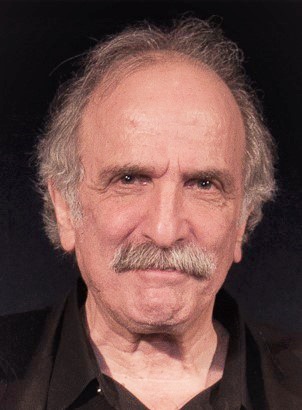
(1-12-21) Long-time peer advocate Harvey Rosenthal answers the four questions that I have been posing to leaders of mental health organizations about their previous accomplishments, priorities and goals going into 2022. Thank you Mr. Rosenthal for responding on behalf of the New York Association of Psychiatric Rehabilitation Services (NYAPRS).
Question One: What was NYAPRS’s biggest accomplishment during 2021?
We’re most proud of our work in coalition with an extraordinary group of NYS criminal justice advocates to help win a landmark ban on horrific solitary confinement for vulnerable individuals that include people with mental health challenges, youth and seniors and new or pregnant Moms. Also, for the opportunities to be able to help fight off proposed deep funding cuts, help craft new peer crisis stabilization and psychiatric rehabilitation models, preserve self-directed care programs and gain another round of funding for a peer led outreach and support model.
Question Two: What are your priorities going into 2022?
New York State:
Community Services: We’re very engaged in campaigns to secure a robust package of funding increases to our community agencies and workforce.
Crisis Innovations: We’d like to see prominent roles for peers in what we hope will be the widespread establishment of 9-8-8 mental health hot line and funding for a peer led crisis stabilization programs.
Criminal Justice Reforms: We’re strongly pushing for the deployment of Peer/EMT first responders in place of police as well as a restoration of Medicaid 30 days before release from prisons and jails.
Community Inclusion: We’re working with cross disability partners to work with state government and stakeholders to create an updated NYS Olmstead Plan
Racism: We are working to see that all policies and programs promote racial equity and justice.
National:
Rights Protections/Alternatives to Coercion: we now know so much more about how to engage people in need without the use of coercive practices that include the use of AOT outpatient commitment orders. For example, we helped to design a peer-led outreach and support program in 2018 that has an 80% success rate in engaging individual who were being considered for court ordered treatment. We are hoping that SAMHSA will provide incentives to states to prioritize these approaches rather than previous policies that funded states to expand AOT initiatives.
Medicaid: CMS should resist efforts to permit Medicaid funding to be used to increase institutional beds and invest heavily in a range of effective community peer outreach and rehabilitation support programs.
Criminal Justice: Many more states should join New York this year in banning if not severely limiting the use of barbaric solitary confinement in state prisons and local jails, especially for vulnerable groups like ours and provide in prison rehabilitation-focused alternative approaches.
Telehealth: We need a good deal more in federal financial support to help people get increased and affordable access to cell and zoom technology, including paying for minutes to promote their use. Otherwise, the promise of virtual support will be denied to low-income individuals in the greatest need.
Question Three: What are the biggest challenges that you currently face?
Creating a unified movement to redouble efforts to promote hope and recovery and advance racial equality, social justice and dignity for all. So much more can be done in 2022 if we can further our efforts bring together the wisdom and will of recovering people, families, peer supporters, community health and behavioral health providers, federal, state and local agencies and independent living and criminal justice reform groups.
Question Four: Why did you get involved in mental health?
We have a family history including my own six week stay at the psychiatric ward of a local hospital at age 19. I left that experience determined to find my way through and have had an inspired life serving our community over the last 45 years….in a state hospital, an outpatient clinic, a clubhouse program and as an advocate for folks across the state and nation who I’ve had the incredible opportunity to meet and know and who have so greatly enriched my life and purpose.
About The Author: (Provided by NYAPRS) Harvey Rosenthal has more than 45 years of experience working to promote public mental health policies and practices that advance the recovery, rehabilitation, rights, and full community inclusion of individuals with psychiatric disabilities and/or diagnoses. Under his leadership, NYAPRS’ advocacy has helped to transform state and national mental health systems, increase access to community-based housing, employment and peer support services, and advance numerous recovery and criminal justice related mental health reforms. Harvey and the NYAPRS team has helped to create several nationally acclaimed and replicated peer support and transformational training innovations. He has also worked to fight stigma, discrimination, and human rights violations and to advance informed choice protections, self-directed care and racial equity and justice.
To learn more about NYAPRS 2022 priorities, you can view Harvey’s testimony before the New York State Assembly here.
(This is the fifth in a series where the leaders of mental health organizations answer four simple questions. The views expressed are those of the author.)



